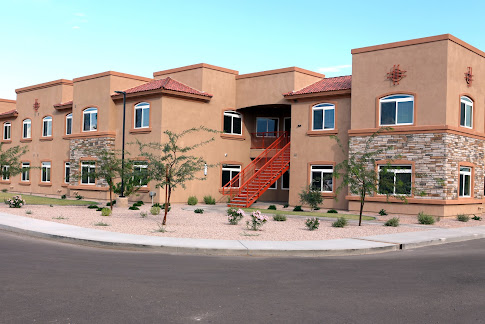One of the most frequent reasons for choosing to live in the greater Phoenix metro area cited by the residents of our senior living facility in Scottsdale is the copious amounts of sunshine. The residents of our assisted living facility at Fountain Hills enjoy on average more than 330 sunny days each year. The daily dose of sunlight allows our residents to enjoy a wide variety of outdoor recreational activities that include golf, cycling, and hiking.
Sunlight delivers several benefits, but like anything in life, you have to take it in reasonable amounts.
Great Source of Vitamin D
Sunlight allows your body to produce vitamin D from the cholesterol that collects in your skin. With more than 330 sunny days a year at our senior living center in Scottsdale, Arizona, residents receive enough vitamin D-rich sunlight to support bone and muscle health, as well as control blood pressure. Vitamin D also plays an important role in regulating your immune system and maintaining the strong circulation of your blood vessels. Sunlight’s ability to generate vitamin D also helps the brain function at a high level, as well as keeps blood sugar at acceptable levels.
Destroys Bacteria
Sunlight is much more than an outdoor phenomenon. It also provides an important benefit indoors. Indoor environments are ideal places for bacteria-laden dust to collect. Some of the bacteria can trigger asthma and allergy symptoms, which for older adults, can lead to serious respiratory consequences. Several studies have discovered that sunlight kills harmful bacteria that cling to indoor dust. One study found just six percent of dust bacteria survived while exposed to sunlight, compared to 12 percent of dust bacteria that survived in a darkroom.
Enhanced Sleep Quality
It seems counterintuitive to claim sunlight improves the quality of your sleep. After all, who sleeps soundly while the sun beams its rays over you? However, sun exposure helps maintain your body’s internal clock, which is otherwise known as your circadian rhythm. Our circadian rhythm responds to the light and dark cycles by helping you fall asleep at night when it is dark, as well as wake up in the morning at the first sign of sunlight. Many sleep experts recommend exposure to bright sunlight in the morning to increase your chances of falling asleep quickly later in the day after the sun sets.
Boosts Mood
One of the negatives of living in an area that receives insufficient sunlight is the development of seasonal affective disorder (SAD). SAD represents a type of mild depression that typically develops during the fall and winter months when cloudy days prevent the sun from working its magic. With more than 330 sunny days per year at the Fountain Hills assisted living facility, SAD does not become an issue, as our residents do not experience SAD symptoms such as fatigue and lethargy. SAD also contributes to lower serotonin levels, which is a direct cause of depression.
Get Your Daily Dose of Sunlight
Living at our assisted living facility in Scottsdale ensures you receive enough sunlight to maintain robust mental and physical health. However, too much of a good thing can become a bad thing. To minimize the damage sunlight can do to the skin, wear sunscreen, spend plenty of time in the shade, and cover your skin if you plan to be outdoors for several hours.
Find out more about the sunny days spent at MorningStar of Fountain Hills by scheduling a tour of our senior living facility in Scottsdale, AZ.

.jpg)







